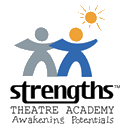10 Most Helpful Vocabulary Development Activities
Expanding children’s vocabularies is a crucial component of every language study program they participate in. Children with more extensive speech not only have an easier time communicating with others, but it also improves their ability to comprehend what they read, their writing abilities, and their general academic success. The following is a list of enjoyable and exciting vocabulary development activities for your youngsters:
Vocabulary Development Activities
Vocabulary Development Activities
- Playing with words:
Word games like Scrabble, Boggle, and Bananagrams are fun and engaging methods to teach youngsters new vocabulary and are ideal for use with younger children. Children may strengthen their spelling and word recognition abilities as well as their language by playing these games, which make learning new words enjoyable and exciting for them.
2. Lists of Words:
Children can benefit greatly from being exposed to new terms in their vocabulary by creating word lists. Children can create word lists by jotting down new phrases in their reading, writing, or speech. This allows the children to take ownership of their word lists. They may also utilize word lists from a vocabulary program or obtain them online. Both options are available to them. The idea is to urge youngsters to use the new terms in context, to assist them in grasping what the words mean and how to use them appropriately, and to encourage them to do so in their writing. To get the best results for your kids, consider taking the help of a competent best personality grooming coach.
3. Reading:
Reading is one of the most effective strategies for youngsters to build their vocabularies, and it is highly recommended. To broaden the children’s vocabulary and introduce them to new words and expressions, encourage them to read extensively and from various genres. Reading to children helps them learn new words since hearing them helps them comprehend the meaning and context of the words better. Another way to assist children in learning new words is to read them aloud.
Visit: advantages of nonverbal communication skills
4. Jumbled up Words:
The children’s word recognition abilities will be put to the test with this engaging game. Word jumbles are a type of problem in which the youngster must rearrange the letters to construct a word. Children may benefit from this practice by expanding their vocabularies and understanding the building blocks that make up words.
5. Today’s Word of the Day Is:
Children may learn new words in a vocabulary-building manner while having fun with a “word of the day.” Children can choose an expression of the day, investigate its meaning, and then apply it in a phrase or a dialogue. Children will benefit greatly from participating in this exercise, as it will teach them to use new terms appropriately and comprehend what those words imply.
6. The Association of Words:
During this exercise, the instructor or parent will provide a word, and the child’s task will be to think of as many words as possibly linked with the given term. If participating in this exercise, children will have a much easier time expanding their vocabulary and understanding the connections between different words.
Visit: ways to show confidence in communication
7. Matching words and pictures:
Children may expand their knowledge of new terms in their vocabularies and enhance their ability to recognize images by participating in this exercise, which includes matching pictures to words. The photos of the things, animals, or acts that correlate to the phrases can be matched up for the children.
8. Storytelling:
Motivate youngsters to use their imaginations while learning new words by having them tell tales. Children will not only develop their storytelling abilities, creativity, and fiction by participating in this exercise, but they will also learn new terms. If you want your child to have a strong and impressive personality, try for classes for personality development for kids.
9. Word-building:
This exercise includes constructing new words by modifying the core word or adding prefixes or suffixes to existing terms. By participating in this exercise, children improve their spelling abilities and their understanding of how words are put together.
10. Role-playing:
Children can acquire new vocabulary terms in their natural settings by participating in exciting activities like role-playing. Children can use the new vocabulary phrases to act out different events, such as going to the doctor or shopping. Examples of these scenarios include:
- Word-mapping:
This exercise requires a visual depiction of a word and its concepts. Children may make word maps by drawing an image of the word, then writing the word in the middle of the page, and then drawing lines to other words linked to the initial word. Children can better comprehend the meanings of words and the connections between words as a result of participating in this exercise. - Word-guessing:
Children may learn new words while having fun with this game, which is an excellent method to expand their vocabulary. Children can take turns explaining a comment to their classmates or siblings without speaking, and the children will have to guess what the word is. Participating in this exercise teaches youngsters new vocabulary and helps them develop their analytical and creative thinking skills.
barrier to communication to overcome
Summing Up
The expansion of a child’s vocabulary is an essential component of the process of learning a language for youngsters. Parents and instructors may assist their children in building a robust vocabulary and improving their overall academic performance by providing them with activities that are not only enjoyable but also engaging and that encourage them to acquire new words. Children’s self-assurance in their linguistic abilities may be significantly bolstered via participation in the above-mentioned vocabulary development activities.
Originally published at http://personalitydevelopmentskills.wordpress.com on January 21, 2023.
